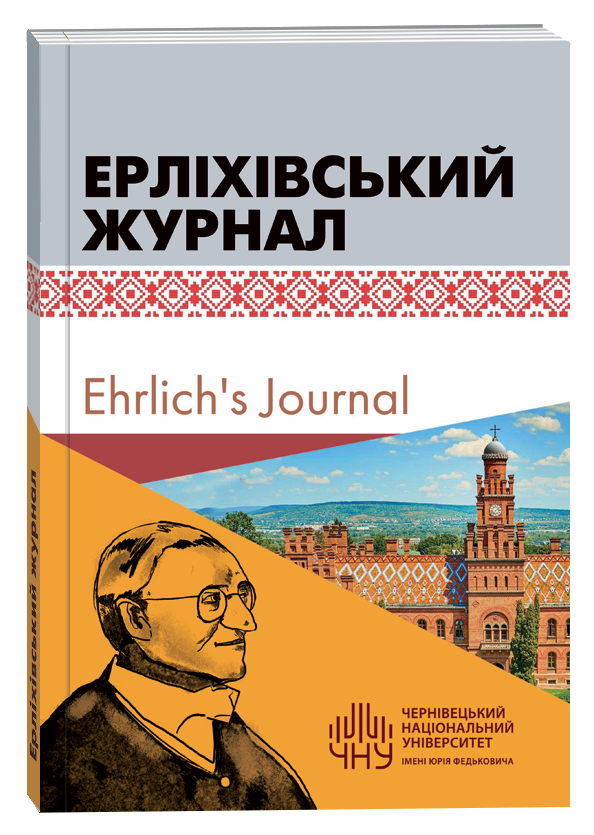SIGNIFICANCE OF NORMS FOR DECISION IN THE COURSE OF FUTHER LAW-MAKING
DOI:
https://doi.org/10.32782/ehrlichsjournal-2020-4.03Keywords:
juridical methodology, juridical argumentation, E. Ehrlich, inclusive and exclusive interpretation, immanent and transcendent further law-making, theory of norms, juridical discourseAbstract
The article under studies deals with the division of the issue of law (quaestio juris) into sub-issues of interpreting law and further law-making. In fact, the latter phenomena were familiar to Roman lawyers (D. 1, 10, 7, 1), but have gained broader popularity since the first half of the XIX century, when they were described in more detail in the work by F. C. von Savigny “The System of Modern Roman Law” (1840). The article points out that E. Ehrlich’s norms for decision potentially concern both sub-issues, since the significance of such norms in juridical discourse is not limited to only free law-making, the latter being closely related to further law-making. The article also regards the issue of how norms for decision correlate with law interpretation and further lawmaking. The purpose of the article is to determine the significance of norms for decision in the course of interpreting law and further law-making. In order to achieve this goal, the article makes an attempt to tackle the questions of what interpretation is in the narrow and broad, in the old and new senses, how interpretation of law and further law-making correlate with each other, and what is the significance of norms for decision in the course of interpreting law and further law-making. In conclusion, the article presents a few arguments in favor of the statements that: in juridical methodology, there is a division of interpretation into interpretation in a narrow and broad senses. The broad interpretation may be referred to as inclusive, as it implicitly includes further law-making. The narrow interpretation can be understood as an exclusive interpretation that does not include further law-making. In this case, the further law-making will exist alongside the law interpretation and have a subsidiary (in the broad sense) meaning. Preference should be given to the coexistence of law interpretation and further law-making as independent means of law-making; there are two types of the canon of law interpretation: the old and original canon proposed by Savigny, which comprises grammatical, logical, historical, and systematic interpretation, and the new canon, which instead of logical interpretation offers teleological interpretation. Teleological interpretation can be a link that connects the new canon of interpretation, or modern interpretation as such, and further lawmaking; there are two types of further law-making: immanent and transcendent. The latter is nothing more than the process of creating new law by a judge through applying the principle of proportionality in one form or another. In this process, the letter of the law or laws is taken into account in one way or another, positively or negatively, and the spirit of the law is always taken into consideration positively, i.e., a claim is constantly made to the fairness of the applicable law; norms for decision within the framework of exclusive interpretation perform the function of an additional normative basis of juridical syllogism, while within further law-making, they are the result of weighing interests, principles, etc. within the framework of the principle of proportionality.
References
Rüssmann H. Zur Abgrenzung von Rechts- und Tatfrage // Alexy R. Elemente einer juristischen Begründungslehre. Baden-Baden, 2003. S. 299–322.
Kuhlen L. Die Unterscheidung von Rechts- und Tatfrage und ihre Bedeutsamkeit für das Strafprozeßrecht // Alexy R. Elemente einer juristischen Begründungslehre. Baden-Baden, 2003. S. 323–356.
Schröder J. Recht als Wissenschaft. Geschichte der juristischen Methodenlehre in der Neuzeit (1500-1990). Bd. 1 1500–1933. 3., überarb. und wesentlich erw. Aufl. München : C.H. Beck, 2020. XX, 511 S.
Schröder J. Recht als Wissenschaft. Geschichte der juristischen Methodenlehre in der Neuzeit (1500-1990) Bd. 2 1933-1990. 3., überarb. und wesentlich erw. Aufl. München : C.H. Beck, 2020. XVIII, 347 S.
Alexy R. Theorie der juristischen Argumentation. Die Theorie des rationalen Diskurses als Theorie der juristischen Begründung. Frankfurt am Main : Suhrkamp, 1991. 435 S.
Alexy R. Juristische Interpretation // Alexy R. Recht, Vernunft, Diskurs : Studien zur Rechtsphilosophie. Frankfurt am Main, 1995. S. 71–92.
Загальна теорія права : підручник / за заг. ред. М. І. Козюбри. Київ : Вайте, 2015. 392 с.
Zimmermann R. Juristische Methodenlehre in Deutschland // Rabels Zeitschrift für ausländisches und internationales Privatrecht. 2019. Vol. 83. Iss. 2. S. 241–287.
Savigny F. C. v. System des heutigen römischen Rechts. In 8 (9) Bdn. Bd. 1. Berlin : Veit u. Comp., 1840. L, 429 S.
Bühler A. Rechtsauslegung und Rechtsfortbildung bei Friedrich Karl von Savigny // Theorie der Interpretation vom Humanismus bis zur Romantik – Rechtswissenschaft, Philosophie, Theologie : Beiträge zu einem interdisziplinären Symposion in Tübingen, 29. September bis 1. Oktober 1999. Stuttgart, 2001. 2001. S. 329–337.
Grosche N. Rechtsfortbildung im Unionsrecht. Eine Untersuchung zum Phänomen richterlicher Rechtsfortbildung durch den Gerichtshof der Europäischen Union. Tübingen : Mohr Siebeck, 2011. XVII, 351 S.
Hüpers B. Karl Larenz – Methodenlehre und Philosophie des Rechts in Geschichte und Gegenwart. Berlin : Berliner Wissenschafts-Verl., 2010. XXVI, 646 S.
Pavčnik M. Juristisches Verstehen und Entscheiden : vom Lebenssachverhalt zur Rechtsentscheidung ; ein Beitrag zur Argumentation im Recht. Wien : Springer, 1993. X, 182 S.
Савчук В. Г. Ерліхівські норми для вирішення з погляду нотаріуса: до питання термінології. Ерліхівський журнал. 2019. Вип. 3. С. 46–51.
Ehrlich E. Die juristische Logik. Tübingen : Mohr, 1918. VII, 337 S.
Ehrlich E. Grundlegung der Soziologie des Rechts. München Leipzig : Duncker & Humblot, 1913. 409 S.
Alexy R. Die logische Analyse juristischer Entscheidungen // Alexy R. Recht, Vernunft, Diskurs : Studien zur Rechtsphilosophie. Frankfurt am Main, 1995. S. 13–51.
Alexy R. Die logische Analyse juristischer Entscheidungen // Alexy R. Elemente einer juristischen Begründungslehre. Baden-Baden, 2003. S. 9–35.







